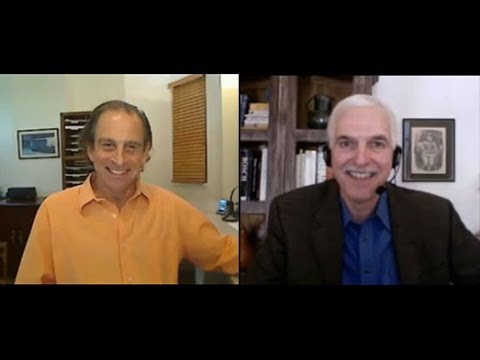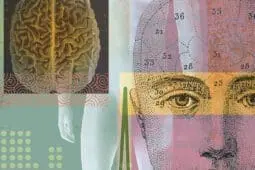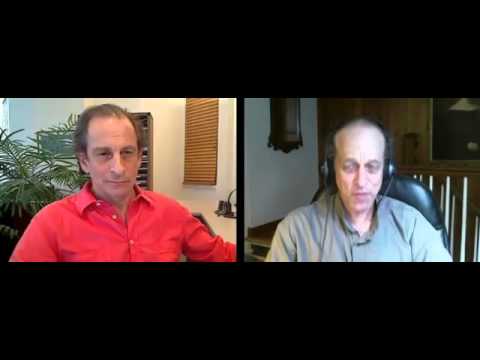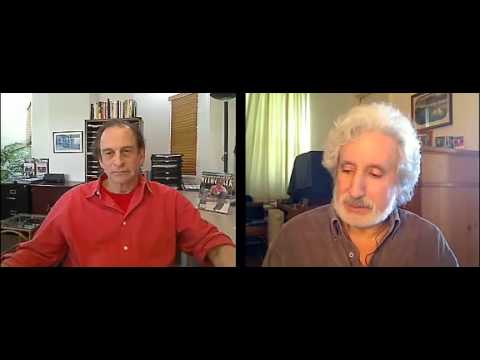
Science & Research
Exploring the evidence behind what we doVIDEO: How to Install New Mental States
What Therapists Should Know about Brain ChangeUntil recently, the impact of brain science on the everyday work of most therapists has been pretty limited. According to Rick Hanson, that’s because we’ve... Read more
VIDEO: How to Make Clients Feel Safe
Today's Video: Bringing Polyvagal Theory into Your PracticeHow can therapists acquire neuroscientific knowledge without becoming brain scientists themselves? Even more pressing, what real-life practical therapeutic... Read more
Why DSM-5 Is a Step Forward for Psychotherapy
Find Out About the Benefits of Dimensional DiagnosisIn this video clip, Regier talks about how the new definition of a major depressive disorder in DSM-5 better enables clinicians to diagnose clients who exhibit... Read more
Putting the Pieces Together
25 Years of Learning Trauma TreatmentTwenty-five years ago, we believed that helping trauma survivors dig into dark and unspeakable horrors would set them free. But in this new age of trauma... Read more
Engaging the Emotional Brain
Highlights from Symposium 2014To get through to clients in our increasingly ADD culture, therapists must learn to evoke a deeper, more visceral engagement with them. At this year’s... Read more
The Brain Science of Self-Deception
Understanding the Limits of Self-AwarenessIt’s commonly suggested that depression results from seeing reality too clearly. Repression, denial, and humor grease the social wheels and lead us to put a... Read more
VIDEO: Creating Antidote Experiences in Therapy
How to Turn Positive Mental States into Enduring TraitsIn this video clip, Rick talks about how to activate positive mental states and help clients embody them so that they become permanent resources. Read more
Understanding the Dangers of Diagnostic Epidemics
The Most Powerful Psychiatrist in America on Why DSM-5 Is a Step BackwardAllen Frances learned first-hand how, even when motivated by the best of intentions, changes in the “bible of psychiatry” can have large-scale negative... Read more
VIDEO: How Meeting Condition Criteria Doesn't Equal Mental Disorder
Jack Klott on One of the Diagnostic Changes in DSM-5While the publication of DSM-5 came with many surprises, few were as shocking—or as controversial—as the number of changes made to diagnosis specifiers... Read more
VIDEO: Like It or Not, DSM-5 Will Affect Your Practice
Martha Teater on One of the Major Changes in DSM-5Whether you’re a critic or a proponent of DSM-5, that fact that it exists and will affect your practice is undeniable. Between several new diagnoses, the... Read more
The Best DSM Ever Written?
Jack Klott, an Advocate for DSM-5, Speaks OutJack Klott discusses the DSM5 and why it's a triumph in the field, despite its flaws. Read more
VIDEO: Is Psychotherapy Becoming Overly Diagnostic?
Allen Frances on Why DSM-5's New Diagnoses Aren't NecessaryOne of the most note-worthy changes in the DSM-5 is the abundance of new diagnoses that are included in this new edition. Many DSM-5 critics worry that this is... Read more
Discover How DSM-5 Will Affect Your Practice
Martha Teater on One of the Major Changes in DSM-5Martha Teater discusses a huge change in the DSM-5 that many therapists are still adjusting to—diagnosis-specific severity scales. Read more
Improving Therapeutic Effectiveness: Moving Beyond Reliable Performance
How Can We Make Progress in Our Therapeutic Effectiveness?K. Anders Ericsson’s work on deliberate practice and client feedback explains studies showing that most of us grow continually in confidence over the course... Read more
The Little Things
Love in the Consulting RoomBarbara Fredrickson’s research on the biology of love and positivity demystifies our ideas about the role of intimacy, connection, and resilience in our... Read more
VIDEO: What Does a Client Really Want from Therapy?
Stephen Gilligan on the First Step Toward a Creative BreakthroughIn this clip Stephen Gilligan talks about one of the techniques he employs to help new clients be more specific in setting their therapy goals. Read more
VIDEO: In Search of the Therapeutic Breakthrough
Bruce Ecker on Finding the Underlying Reasons for Detrimental BehaviorsWatch this clip to hear Bruce talk about a client unwilling to leave an abusive situation and the approach he uses to uncover the underlying reasons why. Read more
Adult Attachment Disorder: 3 Detours to the Right Hemisphere
For Clients with Adult Attachment Disorder, Use the Left Hemisphere to Guide You to the Right"People with avoidant attachment histories are too closed down to have access to experience their right-hemisphere processes," says Daniel Siegel, who's... Read more
Editor's Note - January/February 2014
The Impassable DivideMore and more therapists have begun wondering how far all our impressive-sounding talk about the brain has gone in improving therapy’s effectiveness. After... Read more
The Next Big Step
What’s Ahead in Psychotherapy’s Fascination with Brain Science?Labeling behavior in fancy neurophysiological terms can make what we do sound more scientifically rigorous than the notoriously fuzzy language of... Read more
The Great Deception
We’re Less in Control Than We ThinkMost of us put much too much faith in the power of our conscious minds to bring about lasting change. Instead of looking up the higher branches of... Read more
Beyond Phrenology
Let’s Look at How the Brain Really WorksIf therapists are going to bring genuine insights—not just soundbites—from neuroscience into the practice of therapy, they need the nuanced, sophisticated... Read more
Why We Focus on the Negative
Rick Hanson Explains the Evolution of the Negativity BiasMuch can be made of the power of positive thinking, but the real question is, why do we tend toward the negative in the first place? Read more
The Triune Brain: Three Brains Attempting to Work as One
How the Evolution of the Human Brain has Led to the Existence of the Triune BrainWhen thinking about the general evolution of humans, we primarily compare ourselves to our chimp-like ancestors. But when it comes to the specific evolution of... Read more
VIDEO: Social Conditioning, Or Are We Just Born That Way?
The Neuroscience Behind Primary Gender TraitsLouann Brizendine talks about one of the key neurobiological distinctions between the sexes: the need to reproduce vs. the need to nurture the helpless. Read more
How To Talk About Sex With Men
Esther Perel Shows How Easy It Can BeEsther Perel introduces the subject of a man’s sexuality, sexual practice, his approach to sex, and its place in his life in an effortless, organic way. Read more
Moving Beyond DSM-5
David Mays on the Future of PsychotherapyDavid Mays talks about his disappointment in how medications are currently used and prescribed, the changes he’s seeing taking place, and what those changes... Read more
Male-Friendly Psychotherapy
How Brain Science Illuminates Gender DifferencesPat Love explains how the brain engages and reflects with the emotional state of others and why it comes down to gender. Read more
Examining the Most Controversial Change in DSM-5
Gary Greenberg On The Bereavement ExclusionWhen examining the various changes made in DSM-5, Gary Greenberg finds the most controversial one to be the removal of the bereavement exclusion from the major... Read more
Empowering Today's Parental Authority Figures
Ron Taffel on What Families Can't Function WithoutRon Taffel discusses how Generation X and Millennials handle authority and raising kids differently than their parents. Read more

























